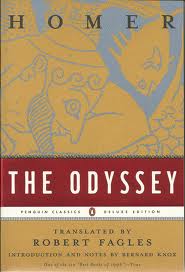
by Fitz | Mar 24, 2020 | Essays, The Crafted Word Blog
The Power of Descriptive Writing
Tell Your Story
 Our minds shift gears when filled with imagery: either we slow down and smell the flowers or we shift into a higher gear, and our minds become alive with the power and rush that only images and actions can initiate to such great effect—but either way we, as readers, are more alive, ready, and willing to move in a new direction. The writer who does not realize this runs the risk of becoming an erudite prude at best and a self-centered mouthpiece at worst because his or her words remain untethered to the real world of the reader who instinctively wants and needs to be anchored to a place that gives full breath and breadth to the senses. It is through engaging the senses that a writer engages the reader. To learn the art and craft of descriptive writing is to learn how to tell good story—and in the end, all writing is simply storytelling, good and bad.
Our minds shift gears when filled with imagery: either we slow down and smell the flowers or we shift into a higher gear, and our minds become alive with the power and rush that only images and actions can initiate to such great effect—but either way we, as readers, are more alive, ready, and willing to move in a new direction. The writer who does not realize this runs the risk of becoming an erudite prude at best and a self-centered mouthpiece at worst because his or her words remain untethered to the real world of the reader who instinctively wants and needs to be anchored to a place that gives full breath and breadth to the senses. It is through engaging the senses that a writer engages the reader. To learn the art and craft of descriptive writing is to learn how to tell good story—and in the end, all writing is simply storytelling, good and bad.
“This is such bull!” I can almost hear the academic writers crying out in opposition. “We are empowered by ideas and the synthesis and explication of these ‘thought provoking’ nuances of a brilliant mind working towards a solution of a specific and fascinating thesis…” Yeah, they got me there—but only if they got me interested in the first place; only if the tree of my life is already leaning in the direction of that thesis, and only if my mind is ready and willing to plow through the muddy slough that seems to be the field of what is blithely and blindly called “essays.” For me at least to keep plowing through, I need to be reached not only an intellectual level but also on the real and palpable visceral levels that completes the fullness of my being human—the blood, flesh, and bones that keeps the intellect alive. Good, descriptive writing is the vital core that captures not just the mind, but the pumping heart and manifest soul of the reader.
Even this—this paltry creation of mine—is being fed not simply by my mind, but by the sublimity of where I am: it is being fed by the first full moon of the summer splaying bits of light through a canopy of woodland forest on a cool New Hampshire night. The dull light of my screen is more than words for me as it attracts more than what is in only in my head; it also attracts a bevy of insects buzzing around or crawling across the hard glass of my screen. Yes, I have an audience already! perhaps the only audience this will have, yet it gives every word I eke out a greater meaning and purpose, and without that purpose for me how can there ever be a purpose for you. I learned and accepted long ago that no one intrinsically cares about me and what I write: they care about what my writing gives to them—how it feeds his or her heart, mind, soul, and being. If he or she receives only a glancing blow, I will count this effort a success on the scales of my life as a writer. And if you—the completely unknown you—are still here reading with some semblance of earnestness that this is time well-spent, then I will reap the unmitigated joy of my words echoing deeper into these dark woods, and I am not alone with this feral whirl of moths, mosquitoes and junebugs.
Good writing separates not only the wheat from the chaff, but also shows the whole process of the winnowing: the drying and grinding of the seeds into the rising flour that becomes the very bread of our lives. My plea is fairly simple: if you are a writer, do not live simply in the guppy thoughts swimming in your head; live in the fullness of your experiences, and cast a net that will strain your gear and haul in a greater catch—a catch that will feed a hungry audience day in and day out and be another testament to eternity. If you are a teacher, let your students write first about what they know best, for if the seed is not in their hands how can it be planted, tended and watered in a garden of joy. Too often our students trudge from the fields of our imposed labors with hands, heads and hearts deadened by defeat—proud warriors once, but no more.
Keep the passion alive. Keep the passion alive. Keep the passion alive. Let every essay, every writing prompt, and every scratch upon the page be a story well told. Teach how to tell good stories; teach how to use descriptive writing to perfect and enliven those stories, and share those stories, and curate those stories.
But let each writer tell his or her own story.
And you tell yours.
by Fitz | Mar 13, 2020 | Essays, The Crafted Word Blog
Some of the words you’ll find within yourself;
The rest, some power will inspire you to say.
The Odyssey, ~Book 3, Lines 29-20
 Nobody ever told me to read The Odyssey—and that was the greatest educational travesty of my life. I first read it after High School while working at Colonial Motors in West Concord. I didn’t “get it” any more than the most confused among you, but what I did do is “feel it.” I felt its primordial power and emotional bareness; I felt another world, another age, and another human journey come alive inside of me. It made me feel that I was a part of long and unbroken lineage of humanity searching for truth and purpose in a world—especially my world, a world not always blessed with clarity and opportunity. I had always been the kid in the back of the class staring out the window dreaming of a better world—and scheming a way to get there. I liked to read, and we read good books in school, but I only lived in those books for the moment. Good books were like a party with a great group of friends: fun, exciting, and memorable, but not life changing. They died, most of them, the moment I closed the book; but, The Odyssey changed my life. It showed me that wisdom is not learned, it is cultivated by deliberation and attentiveness.
Nobody ever told me to read The Odyssey—and that was the greatest educational travesty of my life. I first read it after High School while working at Colonial Motors in West Concord. I didn’t “get it” any more than the most confused among you, but what I did do is “feel it.” I felt its primordial power and emotional bareness; I felt another world, another age, and another human journey come alive inside of me. It made me feel that I was a part of long and unbroken lineage of humanity searching for truth and purpose in a world—especially my world, a world not always blessed with clarity and opportunity. I had always been the kid in the back of the class staring out the window dreaming of a better world—and scheming a way to get there. I liked to read, and we read good books in school, but I only lived in those books for the moment. Good books were like a party with a great group of friends: fun, exciting, and memorable, but not life changing. They died, most of them, the moment I closed the book; but, The Odyssey changed my life. It showed me that wisdom is not learned, it is cultivated by deliberation and attentiveness.
I say this and you might wonder why it is not changing your life. (Hopefully, on some level, it is changing your life.) You might wonder if you are missing something everyone else is getting. You probably wonder why I feel it is worthwhile to read this book during your 8th grade year. Why don’t we just watch “Star Wars” or”24″ or “Wizard of Oz?” Why? Because “Star Wars, “24” and “Wizard of Oz” are archetypes; they are variations of experiences infinitely more real; they are built on the backs of hundreds of books and movies that came before them: but, The Odyssey was built on human experience; it was created out of our most primal need for the wisdom, hope, and guidance that will get us through life. The Odyssey doesn’t give us the tools we need to tackle the problems of life, it simply shows us the heroic nature required to deal and cope with the setbacks, sorrows and tragedies of every life. Bright-Eyed Athena might not be at our side helping us through the day, but The Odyssey shows us that Athena comes in many guises and seldom reveals her true self, and that we, too, need to accept wisdom at opportune and inopportune times in its many forms and guises.
As much as we are taught to stay away from strangers we still must turn our ears to the words they speak—for it might be the very truth we long and need to hear. We might not have a six headed monster on one side of the hallway and a deadly whirlpool on the other, but we do have to make tough decisions where the outcomes range from bad to worse. Don’t despair or even allow for frustration. If you wonder what is going on, then you are doing the right thing. Please, keep on wondering. I hope you wonder; I hope you wonder about who you are and where you are going; I hope you wonder about the problems of life; I hope you wonder where you will find the strength, the wiles, the courage—and the desire—to face these problems with insight, cunning and perseverance. This is what Odysseus had to do; and, if you are to grow towards your individual greatness, then this is what you must do as well. If songs are to sung about you, then you must be the hero of your own odyssey through life.
In a few short weeks you will have defeated me. You will leave my classroom a pillaged wasteland of poems, projects, broken pencils, essays, reflections, ballads, cheese-its, comments, short stories, blogs and granola wrappers. Maybe you will burn your Huck Finn mini series, shred your twenty writing mistakes, meditate—literally—on your haiku book, delete your website, disown your blog, and refuse to listen to ballads, write clear opening sentences and/or paragraph your thoughts; you will throw-away your active reading sheets, erase your margin notes and refuse to admit you know where a comma goes; you will dangle and misplace modifiers and use lusciously disturbing adverbs and insipid adjectives at will. You will forget when Kat died, when Huck tricked Jim, and when “Leaves of Grass” finally ended.
It might feel like you forgot everything you are supposed to remember.
But you will not forget The Odyssey. It does not happen.

by Fitz | Mar 13, 2020 | Essays, The Crafted Word Blog, Workshops
Online Learning 1.0
Yikes! We teachers are being asked on the fly to be ready to shift to “online learning.” Schools might be—and some already are—closing their doors for as yet undefined periods of time. The Luddites amongst us are aghast while those geeky, trendy teachers are suddenly, and perhaps unwillingly, in vogue. Sheaves of paper need to be transformed into readily accessible online documents and new digital platforms need to ready—like right now—to engage and empower HUGE numbers of students and countless schools. Teachers, administrators, students and parents have to step to the plate and deliver, but this is a fastball across the corner of the plate, and it’s a small ball we have to hit. Though I don’t consider myself geeky, I have run a fair share of online classes. Hopefully, this mish-mash of thoughts might be helpful as we face this collective challenge.
Don’t be intimidated. You are probably already engaged in some variant of online learning. Anytime you post an assignment online you are making the first step. Attach a worksheet, a link, a video a quiz, a powerpoint—or any other kind of digitized or multi-media resources, and you are practically a pro. The first learning curve is to know what you can—and can’t—upload to and access from your school’s learning management system, aka LMS. This takes a bit of practice, discernment and organization. Every LMS is different, with different capabilities, so I can only say “embrace the beast” as well as you can. Leverage the strengths and work around the limitations of whatever platform you have in your hands. Even the most limited LMS can be augmented with other online platforms and apps: use shared docs to write essays and assignments, explore topics of interest in discussion forums, create class blogs, watch YouTube videos, make podcasts and utilize quiz-making software. You are only hindered by not trying. It’s a brave new world and, reluctant or not, you are its creator.
Look to the horizon and define (and sometimes limit) your expectations. Online classes require a different scope of focus. As the teacher, you are no longer the “Sage on the Stage.” You are the “Guide on the Side.” This transition can be difficult for educators used to being on stage in front of students leading an energizing classroom dynamic. Online teaching requires teachers to step to the side and be a subtle, guiding presence. As the teacher, you don’t, however, need to lose your commanding role as the leader of your class. Create a podcast, screencast or video that introduces the unit in a succinct (not too long) way that defines the focus, direction and expectations of what you hope to accomplish. Prepare them for battle, but don’t lead the charge.
Visualize your students’ experiences. By now, you have a pretty good idea of your student’s strengths and weaknesses; hence, your curriculum needs to paint both broad strokes that inspire the capable students, yet interspersed with enough precise detail to guide the more challenged students in a way that helps these students feel a sense of empowerment and defined purpose. Visualize these possibilities across the spectrum of your class. Juggle and adjust the details so that “everyone” has the power in their hands to be engaged and productive in their peculiar bents of genius in genuine ways.
Temper expectations with wise reality checks. Online assessments can become a black-hole of drudgery for you and a drag on the spirit of your students. Use shared docs for writing assignments and give appropriate and realistic feedback. This where you are the guide on the side. The temptation is always to give too much feedback, which is a sure-fire path to online burnout. I use a series of text shortcuts that highlight common errors as well as common phrases and comments of praise. By and large the kids are appreciative of short and personal comments, and they need a pat on the head as much as a kick in the behind.
Finally, don’t listen (or at least don’t give in) to those students who argue they can’t figure things out—that it is too complicated and too unfamiliar. At the same time, know your enemy and follow the KISS principle: keep it simple, stupid… Start with small steps and grow your online course in depth and breadth as your students become more adept as online students and you become more comfortable in this wild and worthwhile land of online learning. In the end, you will be amazed at what kids—and you—can do.
It’s what we—the grand and indefatigable we—have to do. It is not a choice.

by Fitz | Mar 13, 2020 | Essays, The Crafted Word Blog, Workshops
I’m sitting here thinking of that old baseball movie where Kevin Costner builds a baseball field in some remote cornfield, and by the magic of the game itself, people begin to flock to that reinvigorated part of the earth. I’m wondering if the same magic can, could, or will happen here. Writing is as exciting as baseball–isn’t it?
Probably not, but it’s worth a shot.
Up until now, this site has been pretty much just a place for my students at The Fenn School to collect assignments, find the rubrics for writing and to engage in the discussion forums–but it has never really been open to or geared towards the general public.
My brother Tom, a successful business executive, once remarked that my approach to marketing is like a man opening a sushi restaurant with a big sign outside that say’s “Cold, Dead Fish for Sale.” And he is pretty close to the truth in that assessment, for my love for my music, writing and teaching has always been (and always will be) rooted in that one word–love. I do love what I do, and I “love” sharing what is quintessentially “me,” warts and all.
I added the “Welcome” essay to my site not to be self-deprecating, but simply to emphasize that I am not proclaiming this site to be anything more than it is–one man’s attempt to share who I am, what I do, and why I like doing what I do.
I have been a family prolific blogger for the past ten years, though my blogs have been spread around my private blogs I share with my students, a Typepad blog that I used for many years, and a blog I have kept intermittently on my music website JohnFitz.com. My hope is to now keep everything here. My larger hope is to host blogging communities directly on this site so that people who want to blog with a community of like-minded writers, musicians, poets and journalists (as in folks who simply want to share the art of journaling) can find a safe, supportive, and dynamic place to engage in the art and craft of what they like doing–and if that is something that interests you, I would be happy to have you as one of my first bloggers!
This is essentially “day one” for me, and it is pretty good to be here right now doing this. How it unfolds (and in some cases, I’m sure, folds) is the big unknown, but as Thoreau once wrote, “You only hit what you aim at, so aim high.” My highest aim is to realize the loftiness of my dreams–and to cling to those dreams however attainable or unattainable they may be.
So it begins…

 Our minds shift gears when filled with imagery: either we slow down and smell the flowers or we shift into a higher gear, and our minds become alive with the power and rush that only images and actions can initiate to such great effect—but either way we, as readers, are more alive, ready, and willing to move in a new direction. The writer who does not realize this runs the risk of becoming an erudite prude at best and a self-centered mouthpiece at worst because his or her words remain untethered to the real world of the reader who instinctively wants and needs to be anchored to a place that gives full breath and breadth to the senses. It is through engaging the senses that a writer engages the reader. To learn the art and craft of descriptive writing is to learn how to tell good story—and in the end, all writing is simply storytelling, good and bad.
Our minds shift gears when filled with imagery: either we slow down and smell the flowers or we shift into a higher gear, and our minds become alive with the power and rush that only images and actions can initiate to such great effect—but either way we, as readers, are more alive, ready, and willing to move in a new direction. The writer who does not realize this runs the risk of becoming an erudite prude at best and a self-centered mouthpiece at worst because his or her words remain untethered to the real world of the reader who instinctively wants and needs to be anchored to a place that gives full breath and breadth to the senses. It is through engaging the senses that a writer engages the reader. To learn the art and craft of descriptive writing is to learn how to tell good story—and in the end, all writing is simply storytelling, good and bad.


Recent Comments